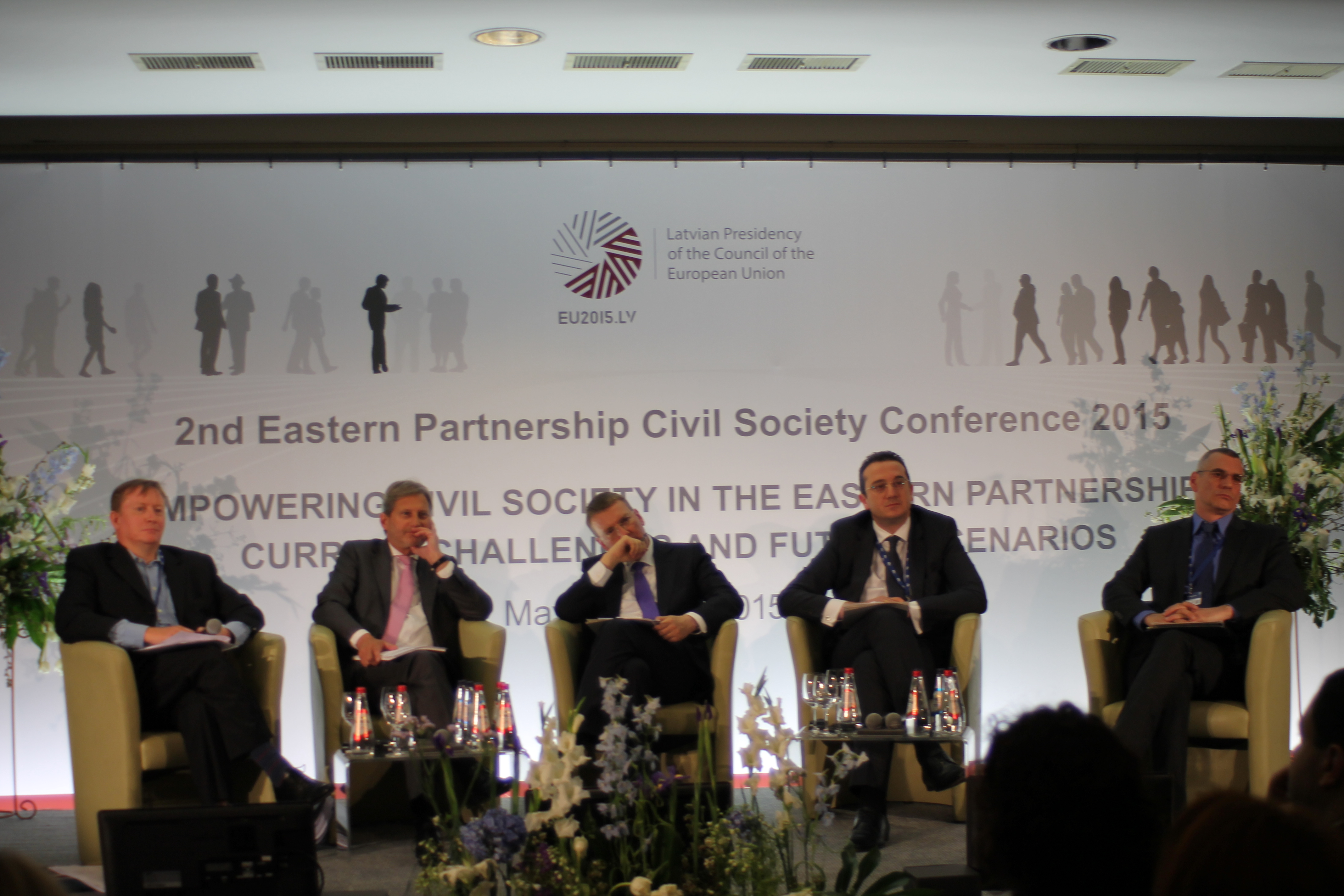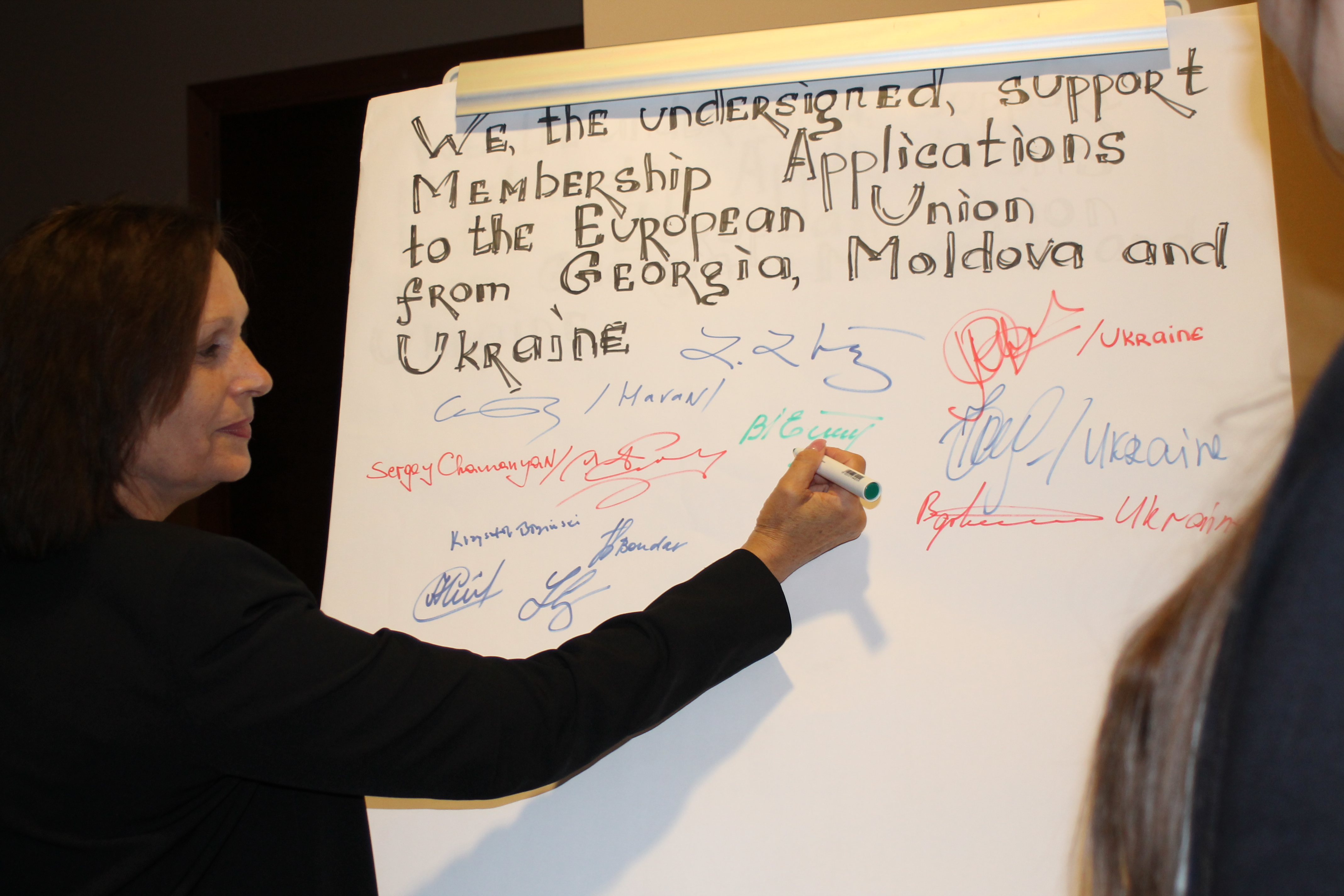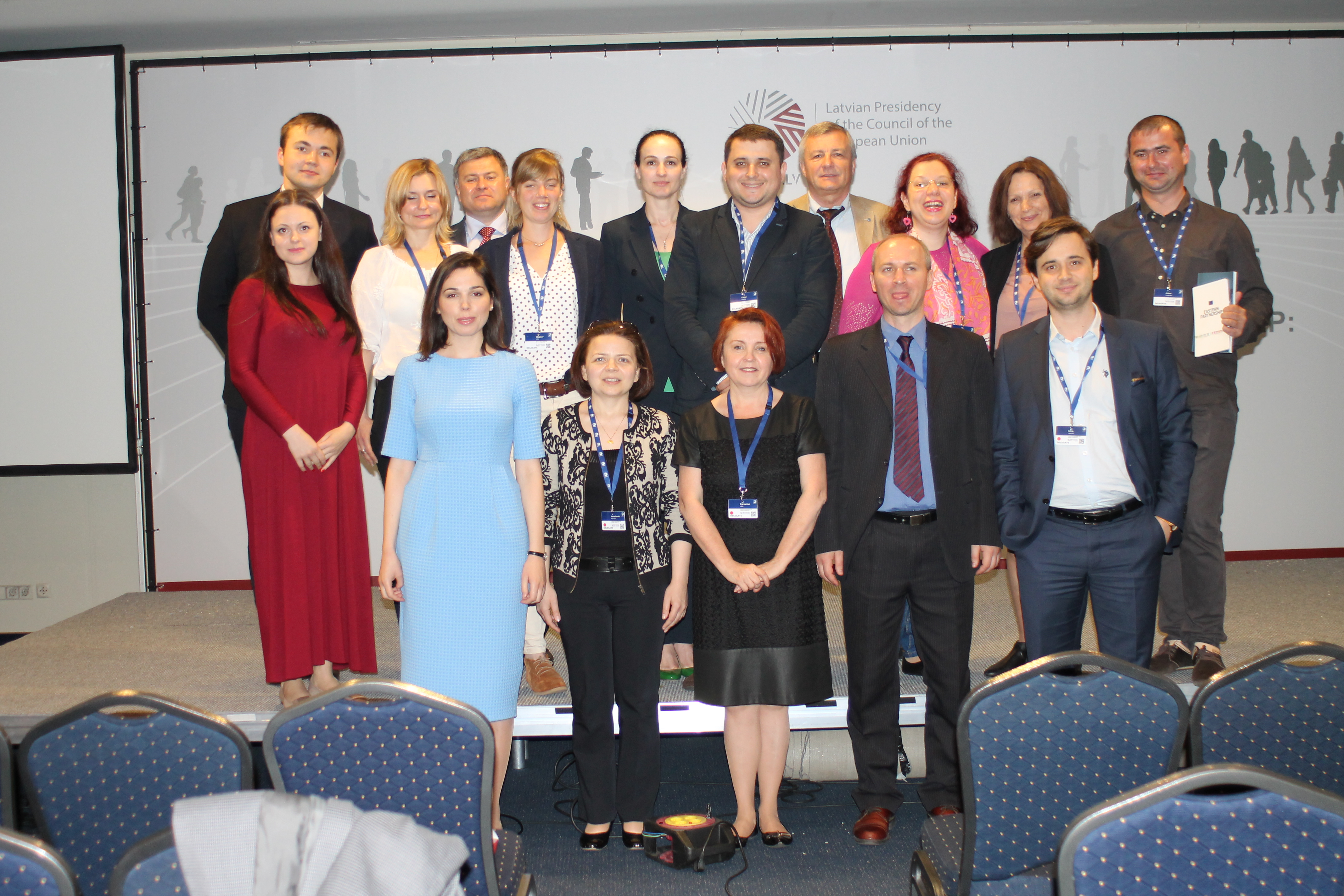European Union's Eastern Partnership (EaP) Civil Society Conference, 21-22 of May 2015
The conference entitled "Empowering Civil Society in the European Union's eastern neighborhood: Current challenges and future scenarios" was held within Eastern Partnership Summit (EaP) in Riga, attended by experts and representatives of civil society the EaP countries and EU Member States.
The purpose of the Conference was to empower civil society actors in the EU and Eastern Partnership countries - Armenia, Azerbaijan, Belarus, Georgia, Moldova, Ukraine and to increase the role of civil society by sharing experience and best practice transformation, to facilitate cross-border cooperation on social inclusion and political issues, good governance, stability and security, and sustainable development.
In the working sessions was discussed about the contribution of civil society to make the Eastern Partnership a framework for successful cooperation at various levels, about the role of Civil Society as a strategic actor in the EU's eastern neighborhood and the role of civil society in promoting peace and stability, conflict resolution and reconciliation in the eastern neighborhood support.
One of the topics discussed at the conference was cross-border cooperation and exchange of experience between EU and non-EU states and Central and Eastern European countries, exchange of experience about the precess of rebuilding their states and societies after the breakdown of the soviet communist bloc.
The focus was on means of strengthening capacity of civil society; which are the pros and cons of existing instruments and how they should be completed to better suit the needs of stakeholders, how we can share best practices, how civil society can engage best in EU policy development, etc.
At the end of the Conference representatives of Moldovan civil society organizations submitted symbolic applications for EU membership.
The application was officially presented to Johannes Hahn, the Commissioner for Enlargement and European Neighbourhood Policy.














